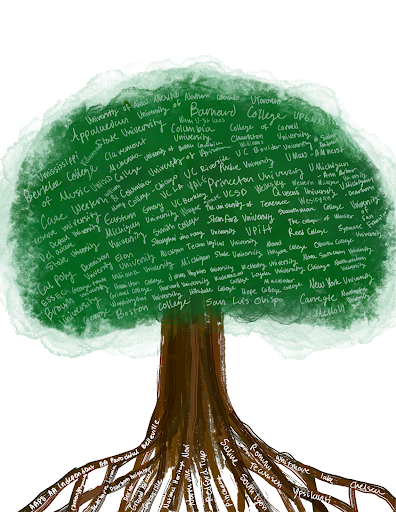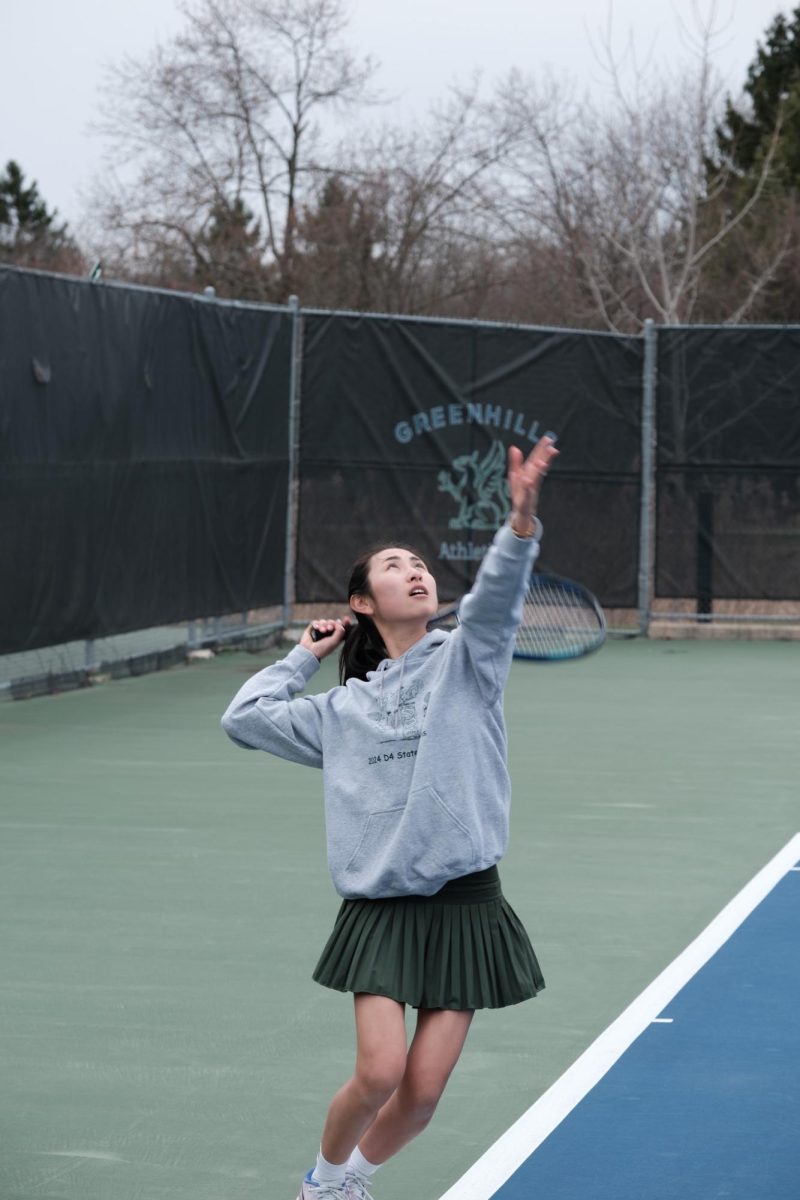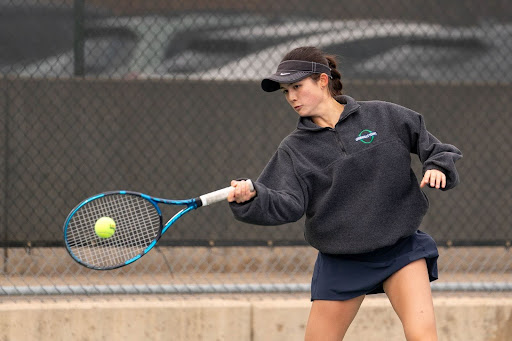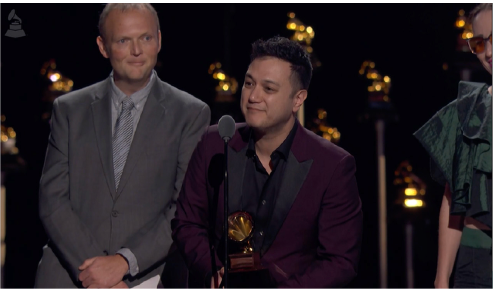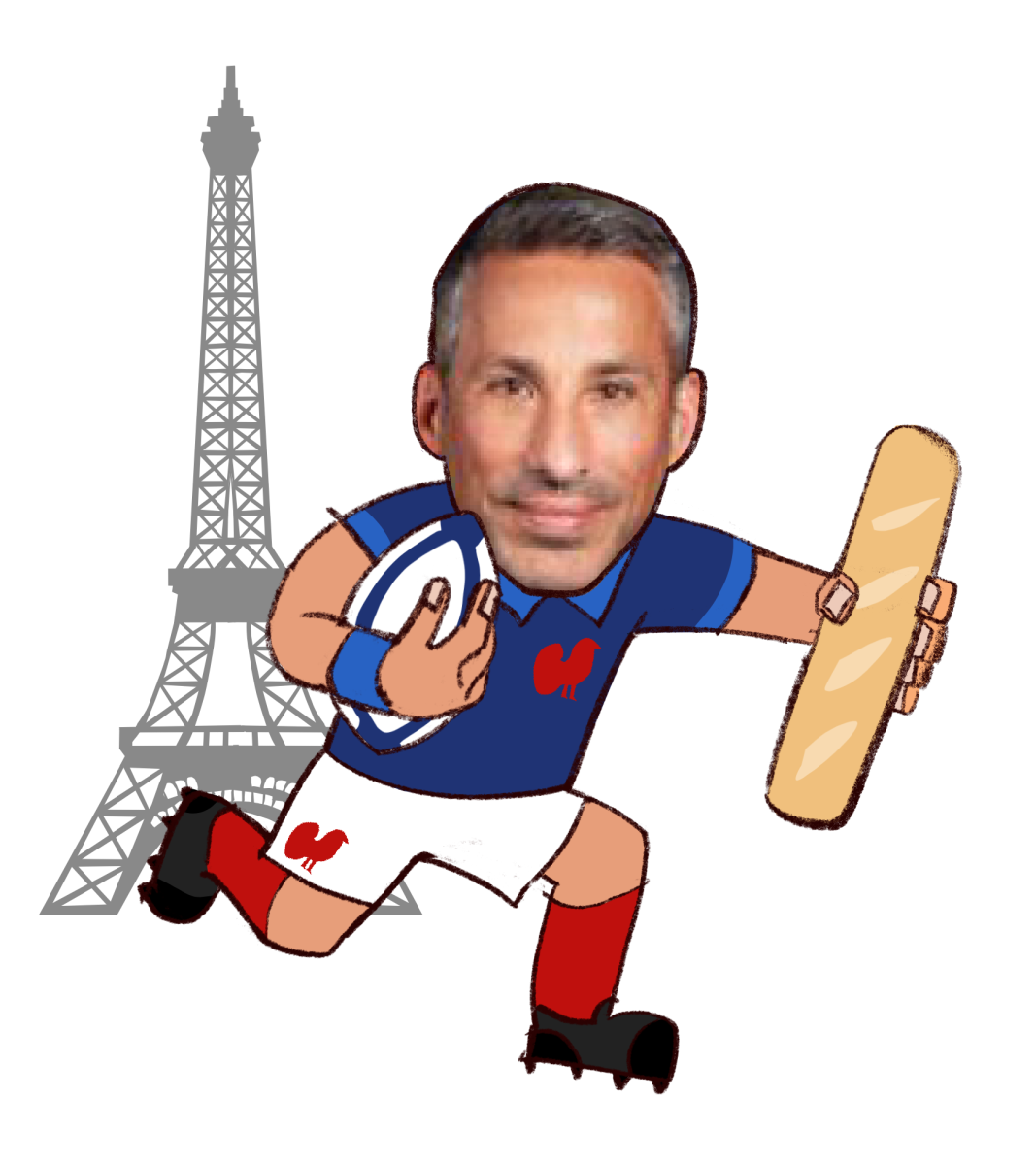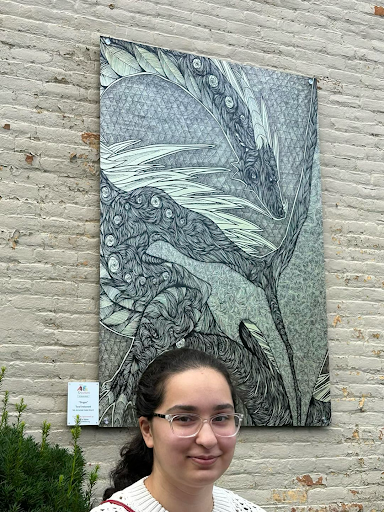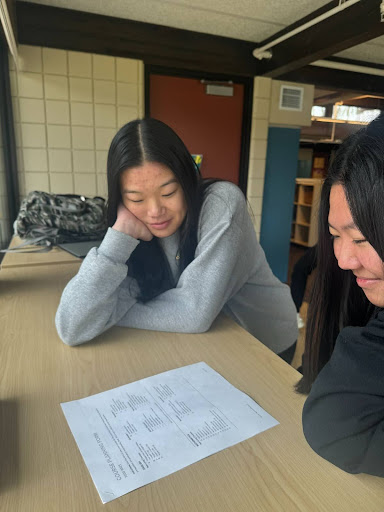
Students will have ten new courses to choose from when creating their schedules for the 2024-2025 school year. These new courses have been in the works since this past August.
“The department chairs met before any of the teachers came back into the building,” Dean of Academics Susan Beamish said. “One of things that we talked about, especially in regards to history and English, was how we can revamp our offerings. The thinking starts at that point, and then the department chairs go back to all of the teachers in their department and say, ‘here’s what we’d like to do, what ideas do you have?’ It really starts in August, and then the process of creating, writing, and refining happens in October and November. Then the department chairs meet in December to go over all of the proposals and decide which new classes will be approved.”
Next year’s new course offerings range from six academic departments, covering the humanities, arts, and science, technology, engineering, and math (STEM). In the Math and Computer Science department, a non-Advanced Placement (AP) calculus course is going to be offered.
“It’s been a long time coming,” Math Department Chair Nina Scheinberg ‘11 said. “We’ve always had two options for students who are ready for an AP level calculus course, but for students who took the traditional path and ended up in precalculus as a junior, we haven’t had a class for them if they want to keep exploring math but not have the pressure of an AP course. We’ve designed this course for people who want to reach calculus but without the pressure and the expectation of taking an AP test at the end of the year.”
The Science department will be offering one new semester-long course for seniors: Organic Chemistry.
“We’ve been looking to add one semester courses, especially for seniors who have finished Advanced Research,” Science Department Chair Catherine Renaud said. “Organic Chemistry is a course that lots of students will see in college if they’re going into science or medicine. It’s just a little bit of exposure so that when students get to university, they will have a leg up. We touch on organic chemistry briefly in current chemistry classes, but this will be a really cool course that will provide exposure to concepts so that they will be more straightforward and less stressful when students see them a second time.”
Three new History and Social Sciences electives: Global Political Philosophy, International Human Rights Law and Diplomacy, and Rights, Justice, Law: the U.S. Supreme Court will be offered during the upcoming school year. Psychology: Human Mind and Behavior will also resume after a year-long hiatus.
“We wanted to do more globally-focused electives because many of our current offerings are American history-focused, so we had students who want to continue their global social science education in mind,” History and Social Sciences Department Chair Karin Scott said.
Global Political Philosophy will explore the development of various governmental structures.
“We’ve had philosophy in the past but this will be a revamped version that focuses on political philosophy in ancient Asia and ancient Africa,” Scott said. “It’s building off of ancient world history. Students will study how governments were made and destroyed, and society’s role in all of that,” Scott said.
Rights, Justice, Law: the U.S. Supreme Court will focus on the judicial branch.
“Students will look into the role that the supreme court plays in government and specific monumental supreme court cases and how those are drivers for social change in our society,” Scott said.
International Human Rights Law and Diplomacy will focus on the causes and effects of the United Nations.
“It’s an extension of learning about the United Nations and its role on the world stage,” Scott said. “Students will look at the history of human rights and it will be through many social science lenses, so history, political science, law, and anthropology will all be used. They will talk about the events that led to the idea of international human rights, stemming from the creation of the United Nations after World War II.”
The English department will be offering two new senior seminars. Senior seminars are intended to mirror a first-year college humanities seminar.
“It’s a deep dive into something small after you’ve already taken three survey courses,” English Department Chair Monica Lewis said. “A lot of these courses are a labor of love. They’re based on the specialties of what we know as instructors. We’re kind of in love with these topics. The generative nature of them and the fact that they started with passion makes them unique.”
The two new senior seminar offerings are English IV: Pirate Studies and English IV: Critically Reading Children’s Literature.
“English IV: Pirate Studies explores the idea of counterculture, why pirates exist, and how they interact with the status quo,” Lewis said. “English IV: Critically Reading Children’s Literature is not going to just be reading children’s books. It’s going to focus on literary understandings, critical perspectives and trends related to middle-grade and young adult literature. Students will analyze what symbols and trends exist in children’s books, for example, in something like ‘The Little Prince’. It will look at pieces that endure from generation to generation, and also at what’s fresh in children’s literature right now. We’re seeing so many more books that are about representation and are giving voices to minorities.”
In addition to the two new senior seminars, the English department will also be offering a reboot of a course formally known as Interpreting the Novel, which was not run this year due to low enrollment numbers. The course will now be called English IV: Globalizing “Moby Dick” Then and Now, in an effort to clarify the content that will be covered in the course.
“Students will read ‘Moby Dick’ and talk about it from a global perspective,” Lewis said. “The course is not new, but it hasn’t been around for six or seven years.”
The Fine and Performing Arts department will be offering a new Textile and Fiber Arts course.
“With the addition of more visual arts faculty, we’ve been thinking of the larger picture of what we offer in terms of courses,” visual arts teacher Nicole Burroughs, who will be teaching the class and has a background in textile and fiber arts, said. “Something that has historically, at least in the time that I have been here, been missing from our curriculum, is a textile or fiber arts course, so I wrote up a proposal suggesting that we add this class in as a course that will alternate each year with Introduction to Art.”
This decision was made because students tend to take Introduction to Art one time, so the addition of a new course would expand the department’s programming for students.
“We’ll do a little bit of a dive into the history of textile arts within different cultures and then we’ll examine contemporary artists that do really innovative things within the textile field,” Burroughs said. “We’ll have weaving, felt making, printing on fabric, some costume design, so a tie in to understanding fashion and the role that textiles plays within that, and then a unit on installation art, because there are some very interesting contemporary artists who do large-scale installation pieces that are exclusively made with fibers.”
The Wellness department will be offering one new elective: Recreational Sports, and is rebranding Lifetime Fitness to now be called Strength and Conditioning.
“We added Recreational Sports so that we could offer a sports-focused elective for students,” Wellness Department Chair Katie Kukulski said. “Students will have the opportunity to play both team and individual sports like basketball or tennis. It will sort of mirror a college physical education class or an intramural sport experience.
In addition, Lifetime Fitness has been renamed Strength and Conditioning.
“We switched the name to Strength and Conditioning to better represent what was actually happening in the class and to better help student-athletes,” Kukulski said.
Some scheduling adjustments will also be made to pre-existing courses. The upper school health requirement is now going to be for tenth grade to allow ninth-graders an extra semester to choose an elective of their choice. Because of this change, Yoga and Mindfulness will now be open to ninth-graders. Courses with high enrollment numbers, like Campaigns and Elections and Mathematical Approaches to Critical Thinking are going to be offered in both the fall and spring semesters. Adjustments like these are made from looking at past enrollment numbers.
“We look at the course selection from previous years and notice that a class may consistently have a lot of students signing up for it, so we think about what else we can offer that looks like that, or if a class consistently only has a handful of students, we think about if it’s still relevant and what we can switch it out with,” Beamish said.
The new course offerings were created with students in mind.
“To me, the new courses fall into two buckets,” Beamish said. “We want to make sure that we are providing a good range of classes for every student and that we’re not always just adding advanced, super intense classes. We want to make sure that every kid has access to a really fantastic science, math, and English experience at every level. The other piece is that, particularly with the English and history electives, we’re mindful of what’s happening in the world and what students are interested in, and so we’re trying to make sure that we provide electives that students will find relevant. I hope that students see that we’re thinking about their interests and trying to make sure that the course offerings are both interesting to them and feel like they are providing them with a good experience and preparation for college.”



